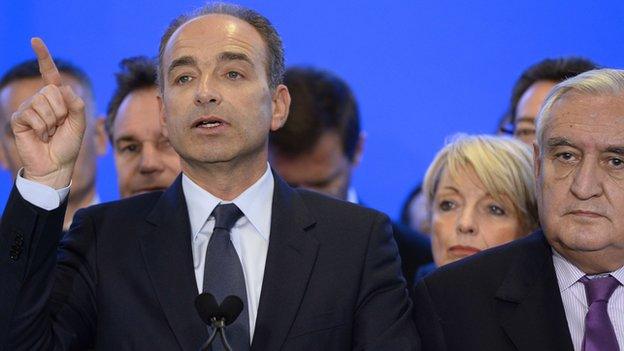Europe braces for first EU-wide vote since 2008 crash
- Published
- comments
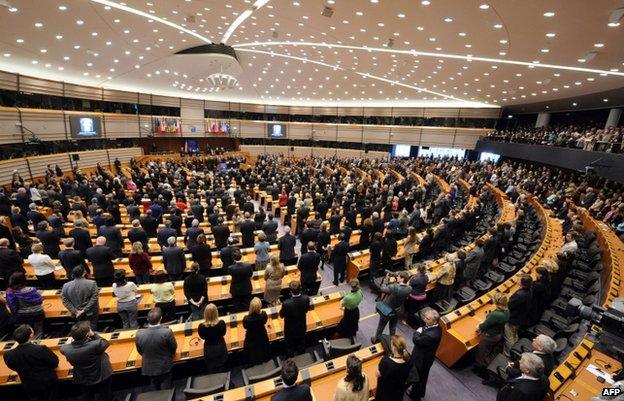
Europe's elections are just over a month away. Campaigns have started, but with a whimper. There are few signs, so far, that the European electorate is engaged. For the moment it is a ghost campaign - apart from the struggle for the top jobs in Brussels.
Mainstream parties will argue over tax and spending and appeal to their traditional supporters, but in many countries this will be a referendum on the European project.
Many voters will have the chance to support parties disenchanted with Brussels and all its powers. The last few years have seen the rise of anti-establishment parties both from the left and right, some nationalist, some extreme and most of them drawing their support from being Eurosceptic and anti-immigration.
So the battle will be fought less over the minutiae of policy but in broad strokes about Europe itself.
In the past year successive polls have registered a widespread disillusionment with the European project. This will be the first Europe-wide election since the eurozone crisis.
The bond markets have moved on - cheerfully buying Greek debt. European officials declare the single currency repaired. But the hangover remains: over 26 million out of work, wages and pensions, in many places, slashed and debts still increasing. Last year Italy's debt rose to 132.6% of GDP. And after all the pain the unanswered question remains - is the future a low-growth Europe?
Backlash time?
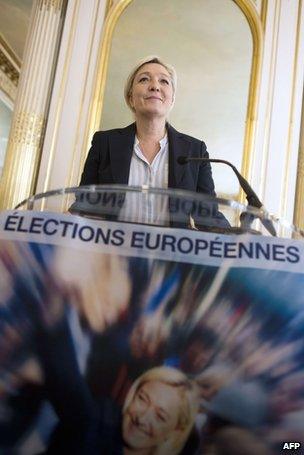
Marine Le Pen is hoping for a historic win for the National Front in France
The historian Niall Ferguson points out that a "political backlash usually follows an economic crisis" but, he argues, the real story is that "despite the severity of the shocks inflicted on European economies since 2008, most voters will back mainstream parties".
That is true to a point, but this election is a battle for legitimacy. A low turnout will undermine the standing of the European Parliament and a strong showing by anti-establishment parties - anywhere above 25% - will raise doubts about the manifest destiny of "ever closer union".
For the disillusioned this is not just a chance to cast an angry cross or tick against austerity. For many it goes much deeper. It is about insecurity and identity.
Europe's leaders have often misread globalisation's winners and losers. With high unemployment in many parts of the continent, ordinary workers are not just wary of further immigration but suspicious of an elite that does not address their fears. It is that vacuum that the anti-establishment parties are filling.
Almost certainly there will be a large protest vote - perhaps most strikingly in France with Marine Le Pen's Front National (FN) which is vying for first place with the centre-right UMP. She may well benefit from high unemployment and an economy struggling to find growth. But there are reasons for questioning whether these anti-establishment parties will be as successful as some predict
In Italy, the new Prime Minister, Matteo Renzi, is enjoying a political honeymoon and will draw some voters away from Beppe Grillo's Five Star movement.
In Greece a new pro-Europe party is gaining traction and taking away some of the support from the radical left party Syriza.
In the Netherlands, Geert Wilders suffered a setback after the municipal elections when his supporters were recorded chanting for fewer Moroccans
In the UK, the United Kingdom Independence Party (UKIP) is under close scrutiny over how it spends European allowances
In Spain and Portugal - both battered by the eurozone crisis - there are no Eurosceptic parties. The leader of the opposition in Spain, Alfredo Perez Rubalcaba, said Spain would "not send a single anti-European deputy to Brussels".
Democracy itself
Even if the protest parties do very well - say they get 30% of the seats - they will struggle to unite in the European Parliament.
Already Nigel Farage and Marine Le Pen are squabbling over whether anti-Semitism still exists in her party. Mr Farage has cast his support in the French race for Debout La Republique (Stand up for the Republic). And the mainstream parties will make common cause, forming alliances to pursue their goal of closer European integration and increasing the influence of the parliament itself.
The European Parliament, although often derided, is a much more important institution than it used to be. Only last week it was taking important steps towards banking union, voting on greater transparency for lobbyists and setting up a new European Fisheries Fund.
It is most unlikely that the anti-establishment parties in the new parliament will be able to block or undermine the work of the committees and the chamber. They disagree too much among themselves. They will be dismissed as wreckers, extremists and populists. All easy put-downs.
But the elections matter and not just because of the growing power of the parliament. The vote touches on deeper questions about the health of democracy, such as whether the governing elites are perceived as on the side of the people or their own political ideas. Is there a decline in political trust between the governed and those in power?
In another blog I will examine the contest for Europe's top jobs, including the president of the European Commission.
- Published23 April 2014
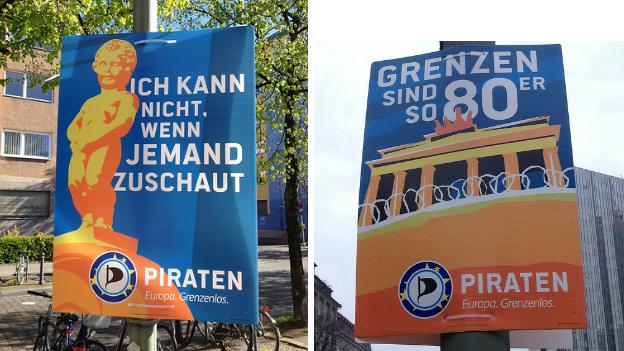
- Published16 April 2014
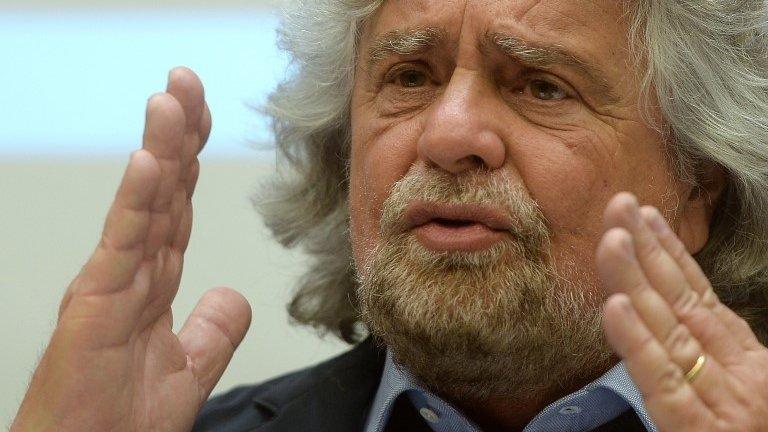
- Published15 April 2014
